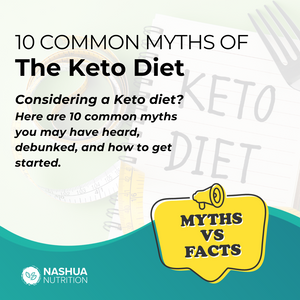What Bariatric Vitamins Do I Need After Weight Loss Surgery?

According to the American Society for Metabolic and Bariatric Surgery, 196,000 people underwent bariatric surgery in the United States, so if you are thinking about receiving this type of surgery, you are not alone. There are some things you should know regarding your health and bariatric diet.
What Is It?
Bariatric surgery is the term used to describe a variety of procedures that reduce the size of the stomach, for overweight or obese people, either by cinching it off or removing a section.
Do I qualify As Overweight Or Obese?
The World Health Organization (WHO) defines over-weightiness as having a body mass index (BMI) of 25, and obesity as having a BMI exceeding 30. To calculate your own BMI:
- Convert your weight from pounds to in (1lb = 2.2kg)
- Convert your height from inches to meters (height in inches x .025) square the height in meters
- Divide your weight in kilograms by the answer from the last step and that is your BMI.
Will The Surgery Make Me Healthy?
The answer to this question is contingent on your commitment to maintaining a healthy lifestyle. Rules to get yourself to a healthy weight include:
- Exercise- building muscle is just as important in burning calories because more muscle means a higher metabolism
- Eat well eat until you are not hungry, not until you are full, and choose only the healthiest options.
- Avoid alcohol- just empty calories and an excuse to lay in bed longer the next morning.
- Sans the sugar- the increase in blood glucose levels makes you think you are hungry when you are not.
To stay healthy, follow a plan, which includes staying well hydrated, maintaining proper protein balance, and getting the proper vitamins and minerals with the help of bariatric vitamins to supplement for what you cannot take in. This is a life-changing surgery, which is a great thing as long as you take maintaining your health seriously afterward. The reduction of your stomach means that you cannot take the same amount of food as you used to. This is great because it means fewer calories, but it is also vital to remember because you also take in fewer nutrients.
Water intake should not change for you as a whole; this means you need to drink small amounts frequently. Always carry water with you to prevent dehydration.
Protein is essential in both fueling your metabolism with its long chain amino acids, and building muscle (which equals higher metabolism.) With a smaller belly, you will naturally eat much less than normal. The ASMBS suggests to shoot for 60-8- grams of protein a day after surgery; a bariatric protein powder can assist with this.
Vitamins and minerals are essential for every single process going on in your body. Your bariatric diet inherently limits your intake, so you will need supplements. The ASMBS relays that after surgery, you will need to supplement with Vitamins D, B12, and A for the rest of your life. This sounds overwhelming, but Nashua Nutrition is on your side, providing trusted bariatric vitamins and other products to support bariatric eating, from brands such as Celebrate Vitamins and Bariatric Advantage multivitamins.
Finding a strong support network is just as important as maintaining a proper diet. Reach out to friends and family, and connect with resources to keep on track. And utilize your resources from Nashua Nutrition to take care of all your bariatric eating.
- Nashua Nutrition Admin









